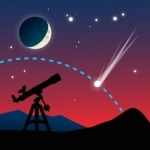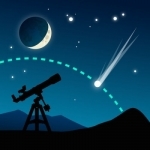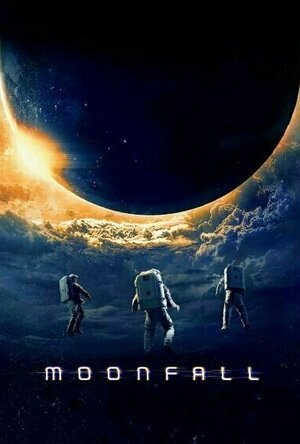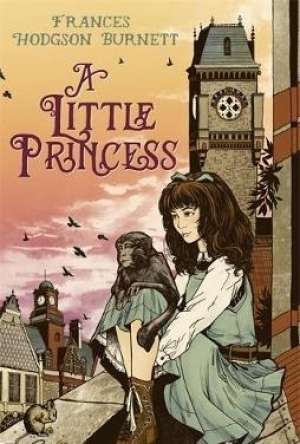
CHEERZ: Photo Printing
Photo & Video and Entertainment
App
Cheerz: Photo albums, photo prints, canvas, photo frames… Print the best photos from your iPhone! ...

Stop, Breathe & Think
Health & Fitness and Education
App
Stop, Breathe & Think is an award winning meditation and mindfulness app that helps you find peace...

Christ In Song
Music and Book
App
We are pleased to present the Christ in Song hymn treasury. These hymns are hand-picked for their...

SkySafari 5 Pro
Reference and Education
App
SkySafari 5 Pro is the ultimate astronomy app. It has the largest database of any astronomy app,...

SkySafari 5 Plus
Reference and Education
App
SkySafari 5 Plus is more than the basic astronomy app, and this is its best version yet! It's a...

TwoNav GPS: Tracks & Maps
Navigation and Sports
App
TwoNav brings you the best GPS application for smartphones, featuring dual navigation to ensure...

TwoNav GPS: Premium
Navigation and Sports
App
TwoNav brings you the best GPS application for smartphones, featuring dual navigation to ensure...
Chris Sawin (602 KP) rated Moonfall (2022) in Movies
Feb 5, 2022
On January 12, 2011, during what is referred to as routine outer space maintenance (it’s a thing), an unidentified technological swarm caused significant damage to the astronaut’s shuttle; killing one of them and incapacitating the surviving two crew members. Brian Harper (Patrick Wilson) maneuvers the shuttle back to earth with no power while his navigator Jocinda Fowl (Halle Berry) is unconscious. Brian takes the fall as he’s labeled incompetent despite previously being an acclaimed hero and he loses his job with NASA.
Ten years later, the moon suddenly begins changing course as a hole 26-kilometers deep is discovered in the center of it. People on earth have three weeks before the moon begins falling to earth in city-sized pieces. While NASA scrambles to discover a solution, an orbital megastructure aficionado and conspiracy blogger named K.C. Houseman (John Bradley) knew about the moon’s shift in course before NASA and may end up being the savior of mankind.
The opening scene of Moonfall lets its audience know that they’re in for an excruciating two hours. Patrick Wilson and Halle Berry argue over the lyrics to Toto’s “Africa” as Wilson musically screeches the 80s rock ballad to annoying results. The film does a few things right like earth’s gravity being a complete dumpster fire and the ocean literally being at foot of everyone’s door like Bo Burnham talked about in Inside. But then introduces the aspect of orbital megastructure in an attempt to not adhere to believable physics while lethargically committing to it.
Flooding, earthquakes, and birds falling to the ground due to gravity alterations are the culmination of the insanity in Moonfall. The moon coming closer to earth also apparently means humans can lift trees above their head and jump over gaps left by fallen bridges with little effort. There’s an awkward car chase between some redneck looters and the main characters of the film.
It’s awkward due to the fact that it’s really funky visual effects (literally everything taking place on the road and in the background) with green screen (the actors driving the cars), but it’s difficult to distinguish what’s what in a bad way. The CGI and special effects in the film are that peculiar blend of not necessarily being bad, but are just off-putting enough to look weird in some capacity. It’s a high speed chase involving a gravity wave, which is mostly just cars and debris floating in the air as the sky turns red. Coincidentally enough, the disaster effects are the best part of the film because they do what they’re supposed to do without overstaying their welcome.
The dialogue in the film is atrocious and Halle Berry is a filter for most of the bad lines. Some of her gems include, “I don’t work for you, I work for the American people and I don’t like keeping them in the dark,” “I am…(the longest pause ever between one word and another)…thinking about our son,” and something overwhelmingly corny about earth’s hourglass and our time running out. Donald Sutherland can barely stomach a brief cameo appearance shared with Berry’s character before excusing himself to the loaded gun he left back in his room (yes, this actually happens).
The evacuation route in Moonfall seems to involve fleeing to Colorado. What is in Colorado and why that’s important is never really explained other than because everyone else is there. Jocinda Fowl becomes the lead director of NASA during the film and her ex-husband (played by Eme Ikwuakor) works for the military. Ikwuakor does nothing but squint like French Stewart the entire time. NASA wants to survey the activity of what’s transpiring on the moon, fly inside of its new fancy made hole, and come up with a plan to save earth in the process. The military just wants to blow up the moon with nukes; screw the consequences, this is America!
With Moonfall, Roland Emmerich has essentially made an even dumber version of Michael Bay’s Armageddon. There’s not a lot to enjoy here apart from KC Houseman’s house cat being named Fuzz Aldrin. With its idiotic premise, hammy dialogue involving some of the most exaggerated emotional speeches ever, stiff acting, unfunny humor, and purposely distorted CGI, Moonfall features an overwhelming amount of frenetic nonsense and has no excuse to be as boring as it is.
The Bandersnatch (199 KP) rated A Little Princess in Books
Nov 7, 2019
There are six film adaptions having been released in 1917, 1939, two in 1995 (One version being Filipino) with the most recent being a Russian film released in 1997. the most well known being the 1995 version being directed by Alfonso Cuaron. There have been seven TV shows based on A Little Princess with the 1973 and 1986 (Maureen Lipton was Miss Minchin) versions being particularly faithful to the books, the 1985, 2006 and 2009 versions were various Japanese anime and another Filipino remake happened in 2007. an episode of Veggietales in 2012 was another version of A little Princess. From 2002 to 2014 there have been several musical adaptions of a little princess as well.
Francis Eliza Hodgson Burnett was born in England on the 24th November 1849 in Cheetham, Manchester, England. When her father died in 1852 her family fell on hard times and Francis was looked after by her grandmother who fuelled her love of reading whilst her mother dealt with the family finances. The family eventually emigrated to the states in 1865 but remained somewhat poor thanks to the end of the American Civil war. Francis started writing in fever trying to help her family get out of the financial hole they were in and did so with her first story being published in the Godey's Lady's book in 1868 eventually being published regularly in its pages alongside Scribner's Monthly, Peterson's Magazine and Harper's Bazaar.
In 1872 Francis agreed to and married family friend Swan Burnett. She continued to write which supported them as they moved to Paris to allow Swan to train as an eye and ear doctor. Francis economised by making clothes for both their sons and for herself. The family returned to the US a few years later where swan managed to set up a doctoring business despite being in debt. For several years afterwards Francis wrote several short stories which were continuously published, Francis eventually turned to children's novels after a meeting with Mary Mapes Dodge the editor of children's magazine St Nicholas. In 1884 Francis set to work on Little Lord Fauntleroy which was serialised in 1885 and published in book form in 1886.
In 1887 Francis returned to England for Queen Victoria's golden jubilee which triggered yearly transatlantic trips between the US and England with her sons. She had fallen ill during this time and had spent time confined to bed, she did however managed to write both The Fortunes of Phillipa Fairfax (only published in the UK) and Sara Crewe or what happened at Miss Minchin's which was rewritten as A Little Princess. In December 1890 Francis and Swans eldest son Lionel died of consumption which spurred his mother into a depression and turn away form the Protestant faith and embrace spiritualism.
In 1898 After their youngest son Vivian finished school, Francis and Swan had divorced (though they had begun to drift apart and were living separate lives several years earlier) and two years later Francis had moved back to England and lived at Great Maytham Hall and married Stephan Townsend, which proved to be a terrible marriage and it ended in 1902. In 1907 Francis returned to the states and spent the next seventeen years in Plandome manor writing several more stories and editing for the Children's Magazine upon the insistence of her Son Vivian. Francis died on October 29th 1924 at the age of 72, she's buried in Roslyn Cemetery and her son Vivian is burred nearby having died in 1937.
I knew of the book as a child but didn't read it until I was a teenager, by then I did know of and had seen the 1995 movie directed by Alfonso Cuaron. The books theme of rising above and succeeding in the face of terrible times is a good thing to reed about. I definitely recommend the book to children and teenagers alike and I give it 9/10.


